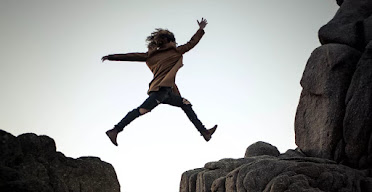The Pride March
Stand up for what you believe in, even if it means standing alone. ~Andy Biersack
How does India accept it?
As we are largely familiar,some minds in India do not bond well with the idea of LGBTQIA+ community, even in the 21st centuary. It would naturally come as a surprise, then, that the first protest held in India opposing continuous harassment against gay men on August 11th, 1992.
The first Pride Parade was observed 7 years later, in 1999, in Kolkata, comprising just a group of 15 gay men. They marched off to spread basic awareness of the LGBTQIA+ community and their issues, which some people were still absolutely unaware about.
The Pride Parade then grew into a much bigger fair, spreading to the major cities by 2008. What started with just 15 men trying to change something, now sees lakhs of people holding a rainbow flag across the country.
Faces behind the work
One of the earlier ones, Laxmi Narayan Tripathi, is a transgender rights activist in Mumbai, India. In 2008, she became the first transgender to represent Asia Pacific in the United Nations. She brought to light the plight of the sexual minorities. She stated, “People should act more human like. They should respect us as humans and consider our rights as transgenders”. Laxmi has been a frontier in many NGOs that conduct LGBTQIA+ awareness work. In 2007, she founded 'Astitiva' that focuses on the welfare and upliftment of the sexual minorities, their development and their support. In April 2014, Indian Supreme Court recognized transgender rights.
While hundreds like Laxmi work to make this movement a success in India,they have reached a milestone by getting Section 377 legalised in 2018,as everyone has the right to live a life of their choice and love a person of their choice.It is also important to acknowledge those actively spreading love and awareness even at the global level about LGBTQIA+ rights.
Barbara Fittings was a prominent American activist for the LGBTQIA+ equality. She lead the New York branch of Daughters of Bilitis in 1950’s becoming USA's first lesbian civil rights organization. In 1972 she fought against the American Psychiatric Association to drop homosexuality as a mental illness.She was later awarded the first annual civil rights award by them.
Karl Heinrich Ulrichs was a civil servant in Germany until he was forced to resign in 1854 on account of his homosexuality. He was a German lawyer, journalist, and author who is referred today as a pioneer of the modern gay rights movement. He published 12 volumes of work on homosexuality.
They knew they had to be on the right side of history. We must also choose wisely what we speak for and think of . With good intentions, our desired consequences will follow.
"…Human beings are Human beings, just treat everyone like that.”
― Hayley Williams
- Team Editorials




Comments
Post a Comment